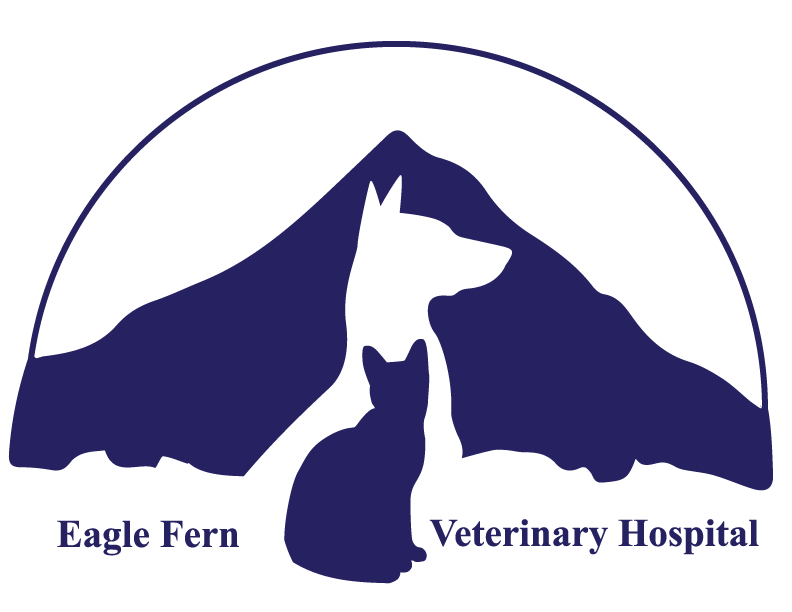What to Expect
If your pet is sick or suffering, the doctor will briefly consult with you to discuss the need for euthanasia. We will help you make the appropriate decision for your pet.
The euthanasia itself is a quick procedure and involves an injection into the vein. Occasionally, animals may have a reflexive breath, vocalize, or eliminate after the injection has been given. There is no need for alarm that the animal is reacting abnormally to the injection. Euthanasia is typically a very quick, painless, and peaceful process.
Options Available to Make a More Comfortable Transition
Sedation- for nervous or anxious animals to calm them for the procedure
IV Catheter- allows for easier access to the vein during the procedure, especially for animals with poor blood pressure.
Support Person- If needed, bring an individual who can serve as a driver or someone to comfort you at your time of need
Private Time- if electing to leave the pet at the clinic, you may spend time with your pet after the procedure
Present at the Time of Euthanasia- some people prefer not to be present for the passing of their pet and this is entirely acceptable. Know that your veterinarian and the staff will treat your pet with kindness and respect.
Options for Handling of Pet's Remains
Private Cremation- ashes will be returned in 7-10 days
Group Cremation- ashes will not be returned
Home Burial- pet's body may be taken home
Disposal- pet's body will be left at clinic
Grieving for Your Pet
It is important to give yourself permission to grieve the loss of your pet. Grief is a process that is experienced differently by each person and at an individual pace. If you find yourself "stuck" in any one phase, it may be helpful to seek counseling or the support of others who have experienced the loss of a pet.
Typically the grief process includes the following stages:
1. Shock and Denial
2. Anger and Guilt
3. Bargaining
4. Depression
5. Acceptance and Resolution
The Healing Process
Honoring and memorializing your pet is an important part of the grieving and healing process. You might consider:
1. Making a donation in memory of your pet to an animal-related organization listed at the bottom of this page.
2. Carrying out a ritual such as lighting a candle for your pet or having a memorial service with family and friends.
3. Making a scrapbook of your pet's life.
Talking to Children about Loss
It is important to be honest with children and explain the permanency of the pet's death in simple, straightforward terms. It is not advisable to tell a child that the pet has been "put to sleep" as the child may become afraid to go to sleep him or herself. Encourage the child to talk about the pet and give the child lots of reassurance. Children work through grief by "doing"; drawing pictures or writing a story about their pets may help them adjust to the loss.
Surviving Pets in the Household
Surviving pets may exhibit anxiety, restlessness, and depression. They may search for their lost companions and crave more attention from their owner(s). However, giving the surviving pets too much attention may lead to separation anxiety. Try to keep the surviving pet's eating, sleeping, and exercise routine as normal as possible to give the pet a sense of stability. It is not advisable to get a new pet as a companion for your surviving pet unless you are emotionally ready yourself.
Animal Organizations - consider making a donation in a pet's name to help other pets in need.
Support and Counseling Resources
-ASPCA National Pet Hotline: 24-hour support message line (800) 949-4646, then 140-7211 + your phone number
-Companion Animal Association of Arizona Pet Grief Support Service: 24-hour hotline
(602) 995-5885
-University of Florida Pet Loss Support Hotline: Phone (352) 392-4700 ext. 4080, calls returned between 7pm to 9pm Eastern Standard Time
-
Pet Loss is a wonderful comprehensive website for pet loss including the Rainbow Bridge poem (animated version) as well as a book list and other support information
Memorials for Your Pet
-
Memory Glass is a company that creates paperweights, ornaments and pendants out of blown glass with your pet's ashes inserted in the center

 Making the Decision to Euthanize Your Pet
Making the Decision to Euthanize Your Pet 